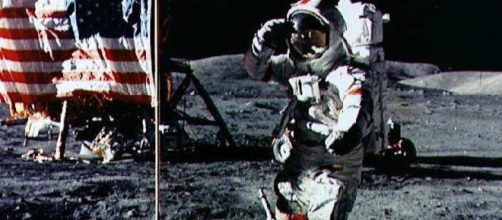One of the most haunting facts about the Apollo program to land men on the moon, as Scientific America noted a while back, is that the last three planned lunar missions, Apollo 18, Apollo 19, and Apollo 20 were canceled, even though the hardware to fly them had been built. The reasons for this cancellation included the desire to save money and equipment for the Skylab program and also the sense that further missions to the moon risked another accident such as Apollo 13, with potentially fatal consequences.
What if the Apollo program had continued past the flight of Apollo 17, which flew in December 1972?
What if the moon landings had dominated the 1970s like a minor war, as the late Arthur C. Clarke had once predicted?
The first thing one has to imagine is what political development would have to happen to allow such the Apollo program to continue. As hard as it is to believe in the 21st Century, the moon landing program did not poll very well. Americans thought that it was time to end the Apollo project and turn the nation’s attention to earthly concerns. The first was accomplished. The second has had decidedly mixed results.
Perhaps President Richard Nixon would have tried to double down on the space race, to put pressure on the Soviet Union? Maybe he would have offered an olive branch to the Soviets and provide joint missions, much as President Kennedy contemplated briefly in the fall of 1963.
In my alternate history series, “Children of Apollo,” I imagine Nixon doing a little of both.
It is not a stretch to believe that extra missions to the moon would have led to an expansion of the Apollo Applications program, the scheme to use hardware built for the moon landings to build a space station, a lunar base, and even conduct interplanetary missions. The world of 2016 would look entirely different if people started living in space on a space station and the moon in the 1970s and if astronauts walked on Mars in the 1980s. The economic and technology stimulus such an expanded space program would have caused would have redounded to the world’s benefit.
But what about commercial space, the idea of space travel done by the private sector, the big development of the current decade?
Commercial space would have likely arisen earlier, as entrepreneurs would have tried to figure out how to send people and payloads into space cheaper than NASA could. The alternate NASA might even have welcomed such an outsourcing as the current one has, the better to free up resources for more exploration.

